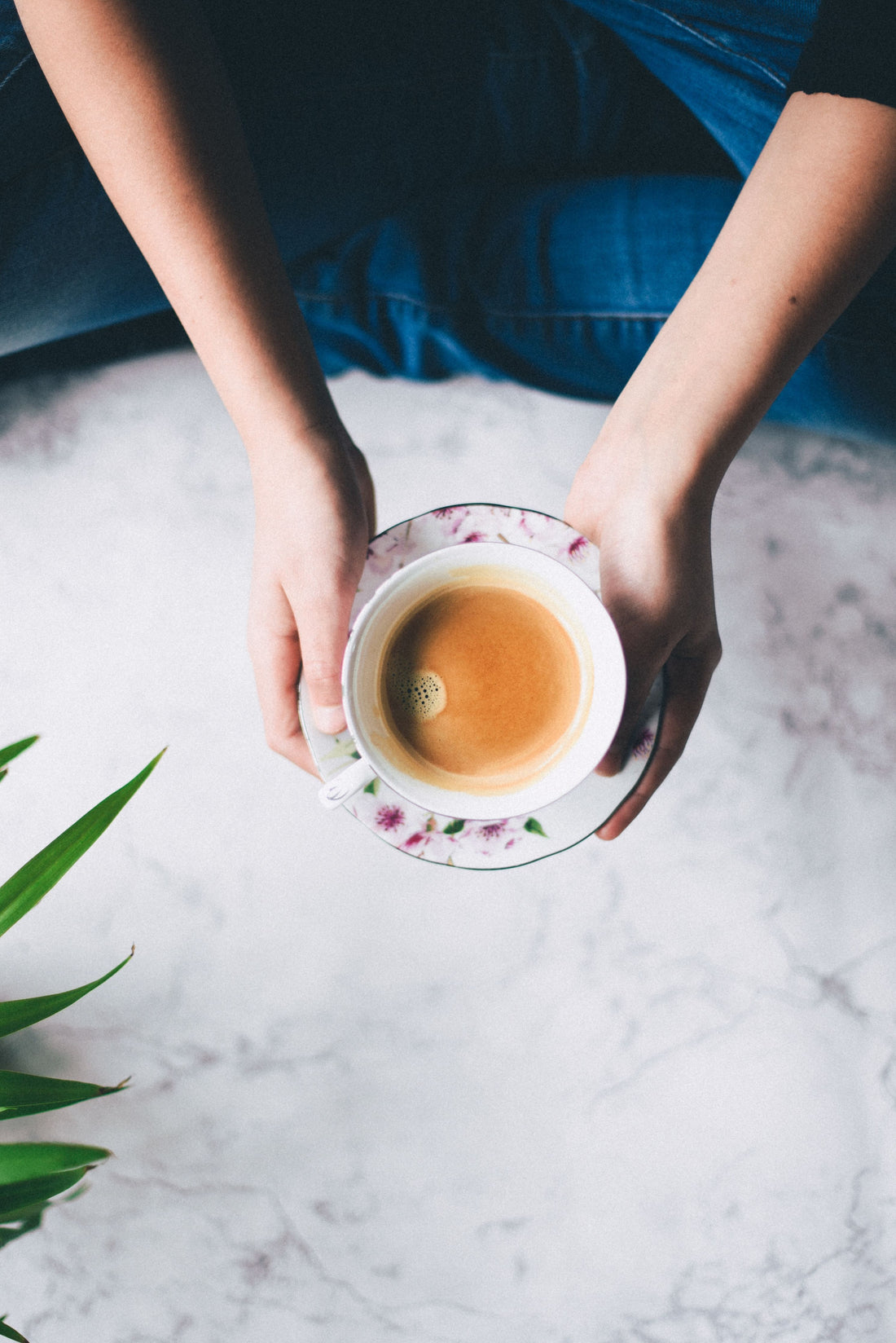When our kids were babies, Tracy and I used to know everything that they'd eaten in the last forty-eight hours. We would prepare their little baby foods, knowing that we were supposed to balance the orange foods with the green foods. We’d write down when they’d last eaten, and how much. So much energy went into making sure that their nourishment was perfect, that it was the best it could possibly be. But for ourselves? We were exhausted, so when we did eat, we just ate whatever was in reach.
There’s a way to tell that kind of story that makes us look saintly or selfless. But it wasn’t that. It was just that it felt too hard to take care of someone else and take care of ourselves, so we chose.

Messages around self-care can be confusing, especially in a spiritual context that seems to espouse a path of selflessness. But self-care, practiced skillfully, is the expression of self-compassion. I want to offer a simple idea—simple, but one I think about all the time, and it’s just this: we never have to distinguish between compassion and self-compassion.
The question of self-care, of self-compassion, arises out of a recognition that we sometimes ignore ourselves. We care about this thing we call the self, because of course we do, but when something else feels more pressing or more important, we neglect the self’s care and feeding. It's tiring to take care of someone or something. It's tiring to take care of me. So it can feel like either or I'm taking care of this or I'm taking care of that.
There are messages—and you hear them sometimes within Buddhism—that say, for example, that whenever you do something kind for someone else, you should appreciate that you're really reaping those benefits yourself; if you put out something good, this good karma comes back. So you can do that nice thing, understanding that there's a payment in kind by the universe. That’s not what I’m talking about here. I don't know if it’s true or untrue, honestly. But when we talk like that, we're talking about people over there and me over here. We're saying these two things are separate. That's not what I'm trying to say. What I want to say is that if we take up this path as Buddhism, if we take up this path from a place of vow, if we take up this path from the understanding that you and I are not separate, that we and they are not separate—truly not separate—then we can start to look at our own behavior and the choices we make, not in terms of me serving me or me serving them, but me moving and living and breathing and eating as everyone, as all beings, so that when I choose what I eat, I'm asking myself, what do I want to feed all beings?
What do I want to digest? To metabolize? As all beings, with all beings, for all beings? What do all beings need? I guarantee you, when you ask this question, it will change some of what you choose. From time to time, you might still get that ice cream cone. Maybe you’ll even say to yourself: this is for all beings; all beings need an ice cream cone today. That's okay, but it kind of misses the mark. There's a danger when we sit in meditation of imagining, I'm sitting for all beings, as if I'm giving this gift. But just an inch away from that is another way to sit in which we sit as all beings, we sit with all beings, and we notice this posture as that expression. As an expression of everything.

What expression do I want that to be? When you ask yourself that question, you sit a little bit differently. When you inhale as all beings, when you exhale as all beings, it's different. When, in that critical conversation, you have to say just the right thing—you still don’t say just the right thing (we never do), but if you imagine that you are the voice of all and that everyone is listening, then you measure your words differently. When you take up this practice in this way, not as something to give, not something to protect yourself from, but with the clear idea that this “I” is an expression of much more than this, of much more than me, it cuts through the idea of self-care, because now everything I do is what I would do if I really care deeply. If I’m taking care.
You can take out the self and yet still be so kind to you—not because you're taking that day off for some me time, not because you're choosing to create a wall that makes you safe, but because you're not, because you're dropping that project of “me” altogether. Like I said, this is a simple idea, but it's one I come back to over and over and over again. For decades now, in the supermarket, with my kids, in the kitchen, I've chewed on this question, forgetting and remembering (and then forgetting again) this simple idea of what it is to make my life an offering. Not in some grand way, not in some saintly way, but with this bite and with this breath, with this step. So I offer this to you, this experiment. Try it. Try it right now. In this moment, if I am doing this with all beings, as all beings, for all beings, then what do I do differently? Do that.
Koun Franz is a Montana-born Soto Zen priest who trained, taught, and translated in traditional monasteries in Japan. He is the guiding teacher of Thousand Harbours Zen in Halifax, Nova Scotia (his talks can be found on their podcast), a psychotherapist, and former editor of Buddhadharma: The Practitioner’s Guide.

